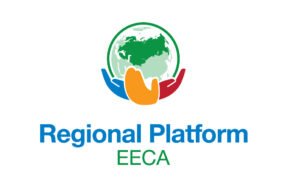UNAIDS Publishes new Report on CLM Evidence
- 30.11.2023 16:56
- Post Views: 311
Community-led monitoring (CLM) involves affected individuals overseeing health services, analyzing data, and advocating for improved service delivery, especially in HIV, tuberculosis (TB), and malaria. Despite being overlooked, CLM is gaining recognition for enhancing health programs’ effectiveness, quality, and accessibility. It empowers communities, strengthens networks, and supports local leadership. During the COVID-19 pandemic, CLM demonstrated adaptability in addressing medicine shortages and expanding its approach. Besides improving health systems, CLM fosters relationships between grassroots organizations and government bodies, promoting advocacy for better care. As health stakeholders embrace CLM, evaluating its current state and integration into community-driven responses is crucial. The report outlines CLM’s value in HIV services, enabling environments, community strengthening, and policy shaping.
This report synthesizes the available information on the value of CLM in four key areas:
- HIV and health services.
- Creating an enabling environment.
- Community systems strengthening.
- Crafting better-defined policies and investments.
Related News
Services for migrants and refugees from Ukraine – HIV/TB care with a focus on key populations
Due to the increasing flows of refugees from Ukraine because of Russia’s invasion of Ukraine, the EECA Regional Platform created a spreadsheet to fill contacts details of face-to-face and online services for refugees and migrants (with a focus on HIV/TB care and key population groups).
Regional Platform – EECA
This web-resource is a part of new regional communication and coordination project “Regional Civil Society and Community Support, Coordination and Communication Platform - EECA”, implemented by Eurasian Harm Reduction Association (EHRA).
Tags
See also
-
EECA’s Regional Platform monthly Newsletter #20, January 2026 27.01.2026 12:58
-
Global Fund Eligibility List 2026 27.01.2026 11:19






